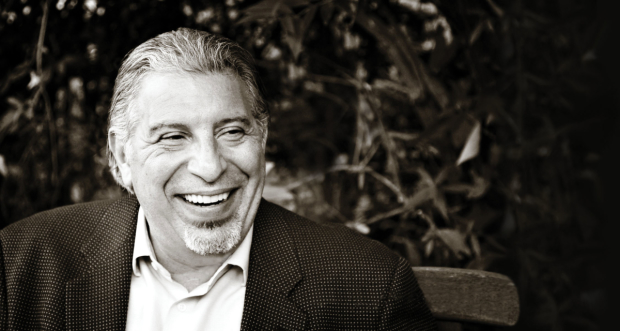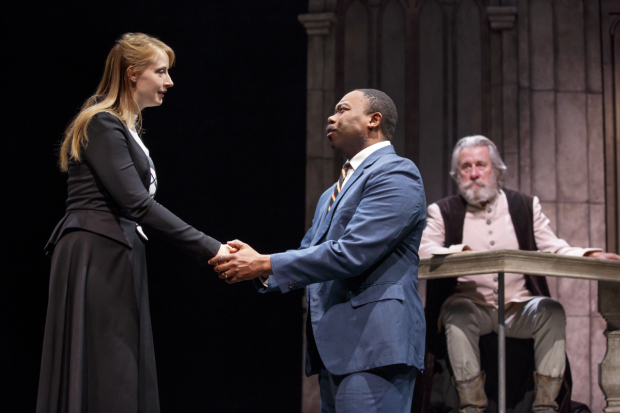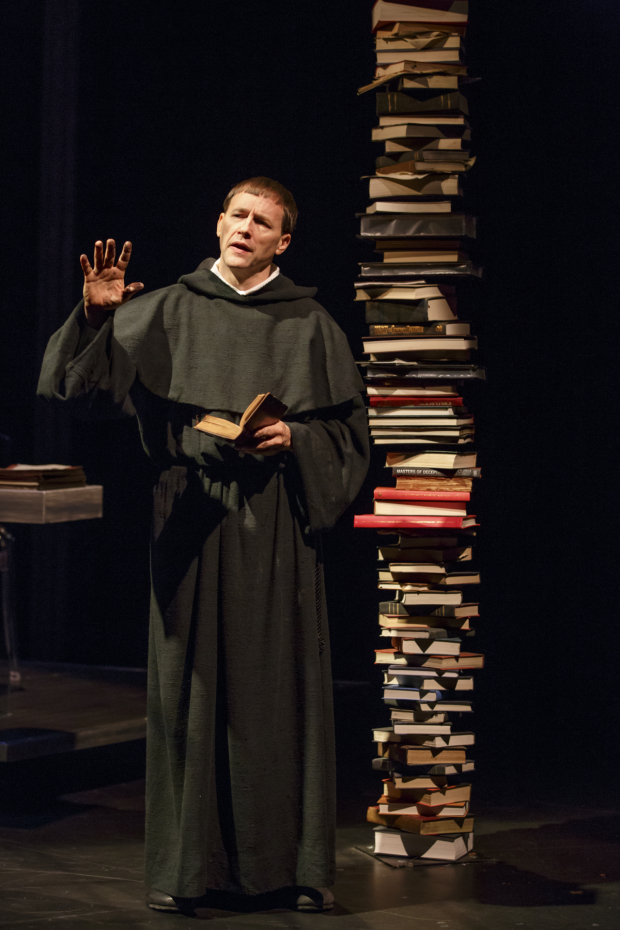Max McLean Talks About Putting Martin Luther on Trial

(provided by Matt Ross PR)
Talk about your long runs. In 1517, Martin Luther, a young Augustinian monk, nailed his 95 Theses to an unassuming church door in Wittenberg, Germany, and launched the Protestant Reformation, or Revolt, depending on your point of view. Five hundred years later he remains a divisive figure.
Regardless of how you see him, few will disagree Luther left an indelible imprint on Western civilization. That imprint — covering issues such as freedom of conscience, the scandal of a splintered Christianity, and his role in the German-Jewish question — remains with us today.
These are the reasons why Fellowship for Performing Arts (FPA) commissioned a play about Luther's life and legacy (cowritten by Chris Cragin-Day and me). Martin Luther is a character of Shakespearean size and dimension. His hot personality along with the powder keg he lit with his 95 Theses changed the spiritual map of the Western world.

(© Joan Marcus)
His impact continues to affect us today. Ideas have consequences. That is why we set the play in a timeless "Afterlife" so that we could explore how the past influences the present. What do Adolf Hitler, Sigmund Freud, Martin Luther King Jr., and Pope Francis have to do with Luther? As our play clearly shows, quite a lot.
FPA's mission is to present theater from a Christian worldview that engages a diverse audience. Our goal is to create works that capture one's imagination and stir dialogue within the larger cultural landscape. In that way, what we do is not unlike other theater companies, with one exception. Our work is primarily about religion, a subject not often explored in the contemporary theater. It's about how the supernatural world influences our day-to-day material world.
In Martin Luther on Trial, it was important for us to admit that we live in a broken world and that historically some of our heroes have contributed to that brokenness.
Many depictions of Luther's story — particularly from Protestants — deal with a troubled soul and conclude with the heroic "Here I Stand" speech in 1521. Most choose not to look at the aggressive behavior of his later years. We chose to examine both in Martin Luther on Trial and let audiences judge for themselves. Under the direction of Michael Parva, it's a delight to watch our cast of six amazing actors bring Luther's story to life and evaluate his legacy in a supernatural setting.
Ultimately, our hope is that Martin Luther on Trial sparks the audience's imagination and inspires dialogue toward renewal and reconciliation. We do talk-back sessions after each performance, and given the response so far from audiences who come from diverse and non-faith backgrounds, something pretty special is happening at Martin Luther on Trial.

(© Joan Marcus)












